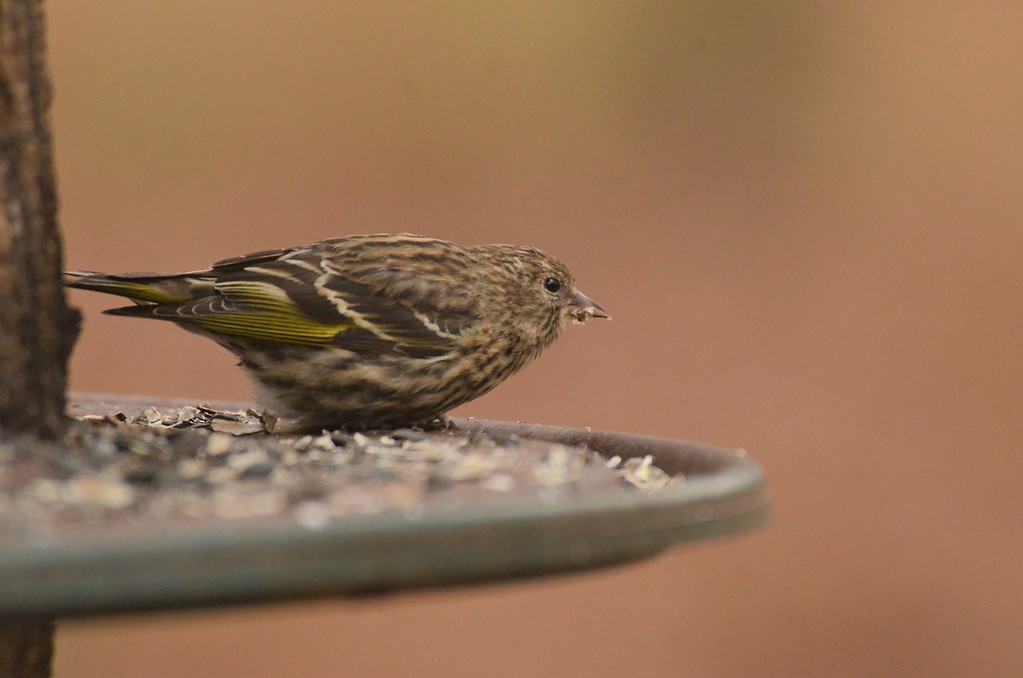Georgia wildlife officials say they’ve been getting a lot of calls recently about sick or dead birds in people’s backyards.
They say it’s especially happening in denser areas where many people have bird feeders.
And it’s happening to birds that are in Georgia in unusually high numbers this winter.
Bob Sargent, program manager for the Wildlife Resources Division of the Georgia Department of Natural Resources, said those two factors are connected.
Pine siskins, which are little brown and yellow finches, are having what’s called an irruption year. With less food than usual available to them farther north, they’ve poured down into Georgia in very large numbers.
“It’s the biggest irruption of pine siskins that I can recall in many years,” he said. “I mean, some people are reporting 50 or more in their backyards.”
And those crowded backyards are where the problems arise. The birds are hungry, and some are sick.
“They’re all crowded together at feeders, and there’s lots of droppings on the ground, and on the feeders themselves,” Sargent said. “You’ve got this climate for disease transmission.”
He said people have been reporting birds that seem lethargic, just sitting on the ground or on feeders, even when they’re approached. Sargent said there are a few problems that can cause that kind of behavior, but necropsies done by the University of Georgia suggest that mostly the birds are getting a bacterial disease called Salmonellosis.
And, he said, it’s not just a case of one stressed bird getting other birds sick on a single feeder. Instead, they’re spreading it to each other from feeder to feeder in neighborhoods where many people feed birds.
“It’s kind of like a critical mass of lots of feeders nearby each other,” he said.
Sargent said the best way to prevent the spread is good hygiene: cleaning up the ground below bird feeders and washing feeders and birdbaths regularly.
“Feeders really should be cleaned ideally a couple of times a week with a mild bleach solution,” he said.
He says there’s no need to take feeders down completely unless there are sick birds in a yard, or in nearby yards.
“But you should be especially attentive right now to the appearance of the birds at your feeder to the possibility that some of them may be sick,” he said.
And if someone does find sick or dead birds in their yard, they can contact the Department of Natural Resources Wildlife Conservation office in Forsyth.
There are other illnesses that can make birds seem lethargic, too, and a dead bird in a backyard could have been killed by a hawk, cat or by crashing into a window, not just by disease.









